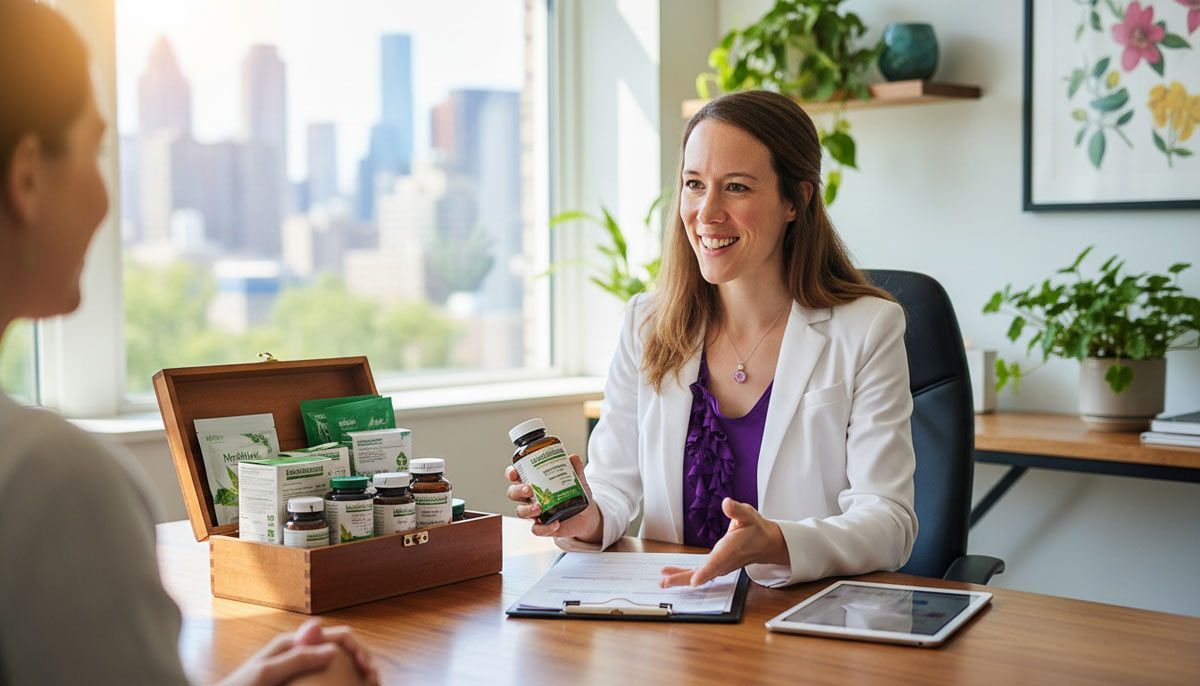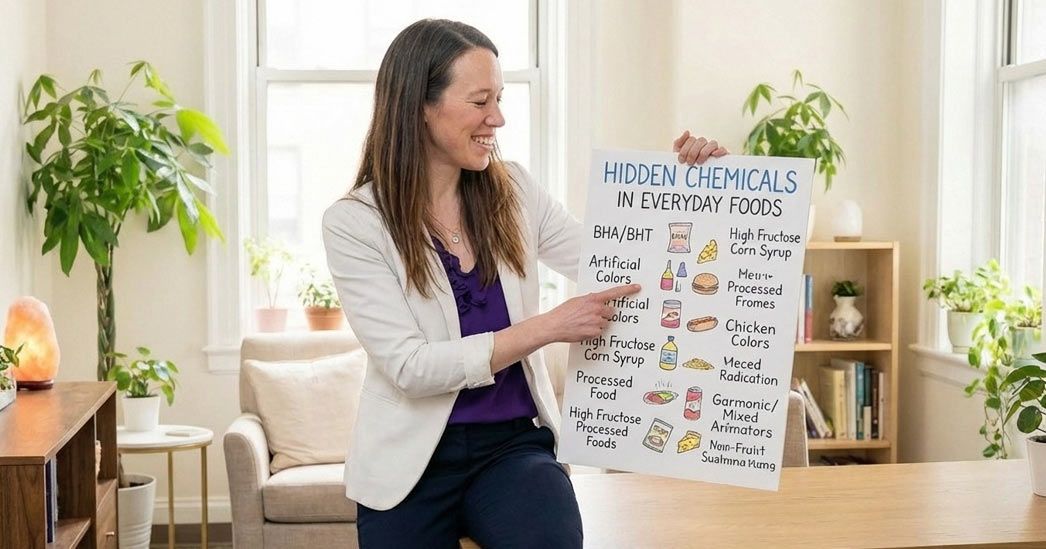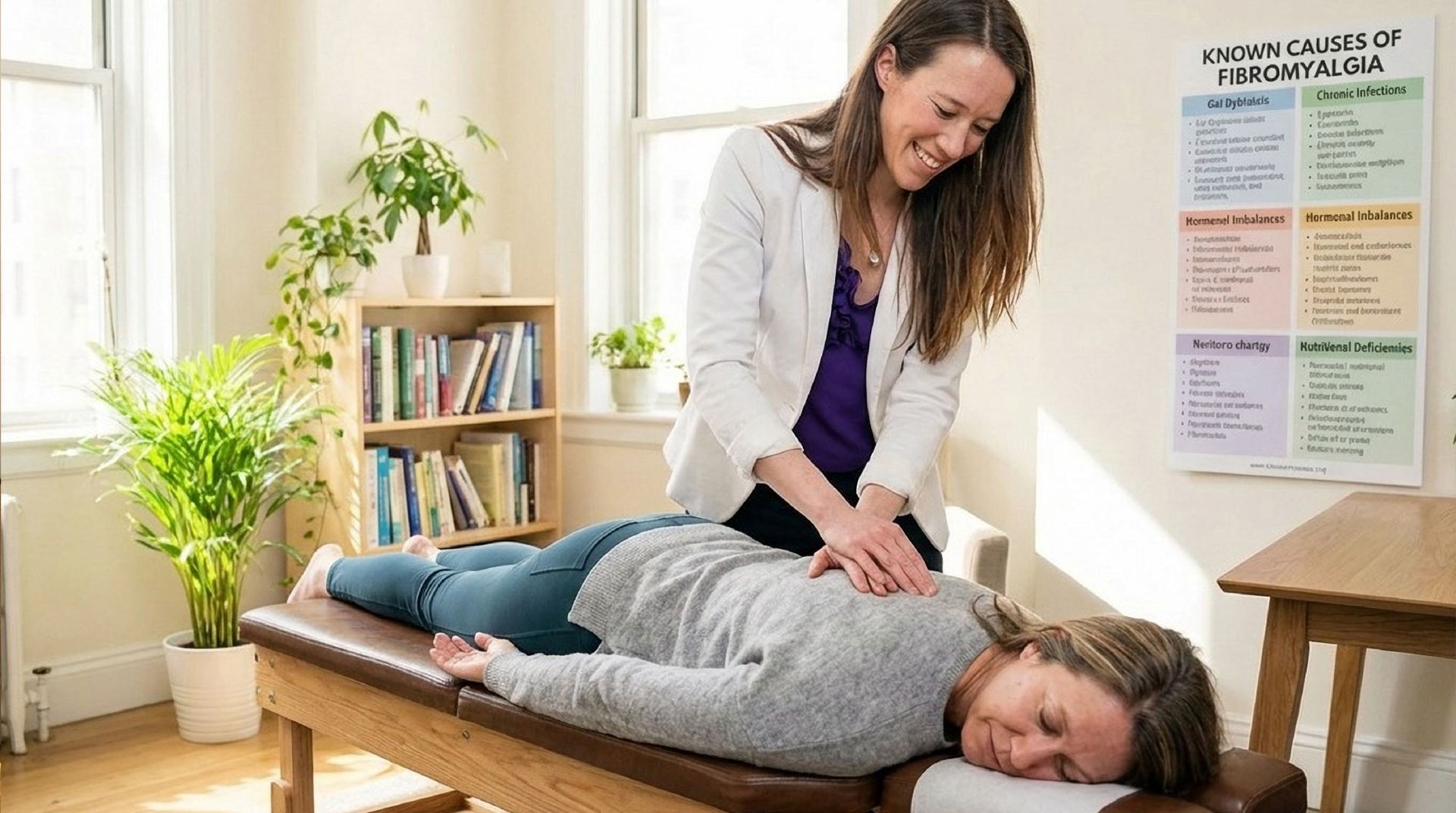Five Biohacks for Gut Health
With all five of these biohacks, you are sure to get your gut health back on track and heal your gut once and for all.
-Dr. Alicia Armitstead
A biohack is a newer term for an easy health tip that improves health and well-being that may not have scientific studies to back it up. I love this term because I have been biohacking for 19 years. If I had waited for scientific studies to prove the results of natural, safe health tips before I gave them to patients, my health tips would have been limited, and so would the results. I stay on top of the science. Yes, I have PubMed bookmarked, but I also do what is logical, safe, and natural to get my patients the results and health they deserve.
When it comes to gut health, these five biohacks have helped thousands of patients. Whether you have irritable bowel, ulcerative colitis, chronic constipation, diarrhea, or day-to-day gassiness and bloat, you can help if you incorporate these five things into your healthcare routine.
Intermittent fasting
Intermittent fasting is when someone doesn’t eat during specific hours of the day to give the gut a rest from constantly digesting. In addition to better gut health, intermittent fasting can reduce systemic inflammation and weight.
Intermittent fasting can also give the gut a rest and create more diversity in the gut microbiome. Microbiome is a term referring to the bacterial environment. You have good bacteria and bad bacteria in your gut at all times, and the goal is to have a diverse amount of the good bacteria to outweigh the bad bacteria. Bad gut bacteria or a bad microbiome is a main reason someone has bad gut health.
When someone is intermittently fasting, they will fast 12-18 hours a day, depending on how old they are and how severe their gut health is. The older you are, the less fasting you need to do. During fasting times, drink plenty of water to stay hydrated. Black coffee and plain tea are allowed during fasting times as well. When you first start, start slow. Try a shorter fasting period at first and gradually increase as your body gets used to it. It’s important to also eat healthy during the eating window.
Eat your Probiotics
Probiotics are the good bacteria that you need to create a healthy gut. There are 600 different species of good bacteria. You need them in different ratios to have good gut health. We do muscle tests to know exactly which type of bacteria you need and get biofeedback from your body to be very specific about what probiotic supplement you need. If you have taken a probiotic supplement and it didn’t feel good, it’s because it wasn’t the right type, you have too much bad gut flora or an actual gut infection. When it is due to bad gut flora or an infection, you must kill the bad gut flora or infection first and then add the good gut flora second. No matter what status of gut flora you have, eating foods with probiotics is a good idea.
If you have had adverse reactions to probiotic supplements, know that probiotic foods are fine. When probiotics are from a food source, they are in a smaller quantity than a supplement, so eating them won’t upset your gut. Yogurt is a popular choice. Siggi’s plain or vanilla (sweetened with agave) is my favorite. If you are going plant-based, try Cocojune’s plain yogurt made with coconut milk. Kombucha is another good probiotic food choice. The sugar content is high, but that’s because it feeds the good bacteria. Try to find a kombucha lower in sugar and glass, not aluminum. I like Rise Kombucha. Don’t forget fermented veggies! Eat sauerkraut, kimchi, and pickles. Apple cider vinegar is also great but only if it includes the ‘mother’, a cloudy mass of healthy bacteria that forms during fermentation and contains beneficial probiotics, enzymes and nutrients.
For the probiotics to stay and colonize your gut, you need to fill up on prebiotics. Prebiotics are fiber that the good bacteria cling to and use as food. In this way, they colonize, and you won’t always have to use a probiotic supplement.
Meditation
Stress affects your digestion. It’s just how we are hard-wired. We put our stress in our gut. That’s why we have so many different sayings for it. “I’m so nervous I could throw up. I have butterflies in my stomach. I have a stomach knot.” Meditation helps take the stress off the body by calming the mind. Meditation does not need to empty the mind and find silence. It can be a guided meditation where someone talks you through a calming visualization. I suggest 20 minutes in the morning before the day's stress begins. This way, your nervous system will be stronger in handling what is to come, and it won’t affect your gut so intensely. I also recommend taking 20 minutes before bed to relieve the daily stress. This way, sleep is deeper, and you feel good when you wake up.
Lymphatic Therapy
Lymph is a fluid that runs through our body like blood does. We have blood vessels, and we have lymph vessels. The blood has a pump, the heart. Lymph does not and uses our muscle contractions to move. Lymph movement is important for good digestion because if lymph slows down, so do the bowel movements, causing bloat and constipation. Massaging the gut can help the lymph move, and drinking plenty of water can also help. I recommend at least 64 ounces of water a day. We also have a special electronic machine in the office that is amazing at moving the lymph at a deep level. LINK.
Light Therapy
As a chiropractor, I have been using red light therapy to reduce inflammation in joints and muscles since 2004. When I found that they took the inflammation-reducing red light and put it with blue light (which moves lymph) and infrared light (that improves circulation and relaxation) in a special machine that also reads the frequencies of your body to personalize the lights to your body, I was super excited to add it to the Wellness Center. This light therapy is done over your gut to bring personalized healing.
With all five of these biohacks, you are sure to get your gut health back on track and heal your gut once and for all.












